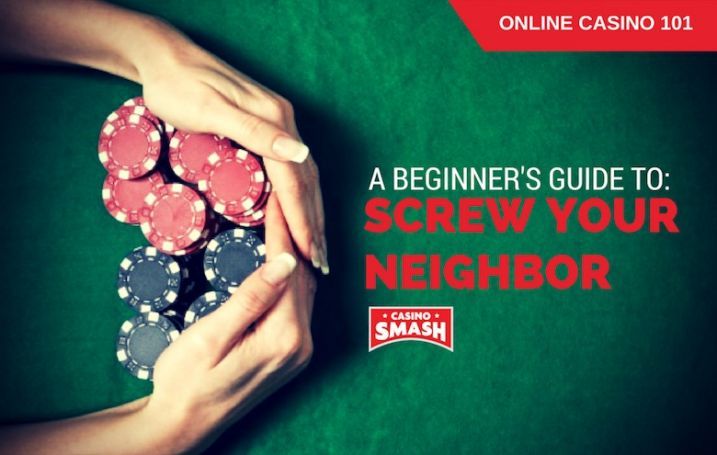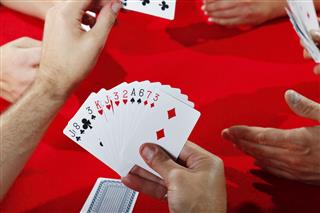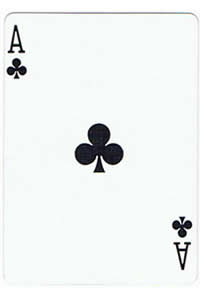Screw Your Neighbor Card Game
Posted : admin On 7/18/2022- Screw Your Neighbor Card Game Like Uno
- 7 Card Stud Poker Games Free Aol
- Card Game History Of Screw Your Neighbor Card Game

The Screw Your Neighbor drinking game requires a combination of logic and luck. Each players gets one turn per round to obtain a high card, through either trading or keeping cards. Screw Your Neighbor. Required materials: One deck of playing cards. Can of beer or cup of other alcohol. Setup: Deal a card to each player. Playing: The goal of the game is to not to end up with the lowest card. The highest card is a King, the lowest is. The Screw Your Neighbor drinking game requires a combination of logic and luck. Each players gets one turn per round to obtain a high card, through either trading or keeping cards.
| Origin | England |
|---|---|
| Alternative names | Cuckoo, Chase the Ace, Screw Your Neighbor |
| Type | social game, game of chance |
| Family | Shedding game |
| Players | any |
| Age range | 6+ |
| Cards | 52 |
| Deck | French-suited pack |
| Play | Clockwise |
| Card rank (highest first) | K Q J 10 9 8 7 6 5 4 3 2 A |
| Playing time | 10 – 45 minutes |
| Related games | |
| Coucou, Cuccú, Gnav, Hexenspiel, Kille | |
Ranter-Go-Round is a primitive gambling game and children's game using playing cards.[1] It is known in most European countries as Cuckoo;[1] the French variant being called Coucou. Other English-language names include Chase the Ace, Cuckoo and, in America, as Screw Your Neighbor.[2]
It is related to the dedicated deck card or tile games of Gnav and Killekort.[1]
History[edit]
Ranter Go Round is described as early as 1881.[3] The game 'is said to have been first played in Cornwall,'[4] however Cuckoo has been played in Europe since at least the 17th century, often with special cards.[5] An 1882 account describes Ranter Go Round as 'a first-rate game for a winter evening.' Players have 3 lives in the form of counters, receive one card each and exchange with their left-hand neighbours, the dealer exchanging with the stock. Players may stand i.e. refuse to exchange with their left-hand neighbour if they believe their card is high enough not to lose. There are no cards with special privileges.[4]
Confusingly, at about the same time the name Ranter-Go-Round appears in the literature associated with the different game of Snip, Snap, Snorem. For example, in 1879 in a publication by the English Dialect Society it is described as 'an old-fashioned game of cards, marked with chalk upon a bellows or tea-tray. Now at a table, and called Miss Joan.' This is followed by the lines 'Here's a card, as you may see! Here's another as good as he! Here's the best of all the three; And here's Miss Joan, come tickle me. Wee, wee!'[6] The same description appears in the West Cornwall Glossary of 1880.[7]
Play[edit]
Any number of players may participate, using a standard deck of 52 cards without jokers. The card rankings (from highest to lowest) are K-Q-J-10-9-8-7-6-5-4-3-2-A, or alternately A-K-Q-J-10-9-8-7-6-5-4-3-2. Suits are irrelevant. The goal in each hand is to avoid ending up with a lower-valued card than any other player.[8]
Each player starts the game with the same number of chips or counters, usually two to four. When the game is played for money, all players contribute the same amount to a central pot. Each player is dealt one card face-down, after which play begins with the player to the left of the dealer. After examining his/her card, a player may either keep it or exchange it with the player to his/her left. However, if the intended recipient is holding a card of the highest value (depending on which set of rankings is being used), he/she turns it face-up and the trade is nullified. Any player who shows a top-value card in this manner is considered to have completed his/her play for the hand. Play proceeds clockwise around the table, with the dealer playing last; instead of trading cards with someone else, though, the dealer may exchange his/her card for the top one from the deck.
After all players have taken a turn, they turn their cards face-up and the one with the lowest-valued card loses one chip. If two or more players tie for lowest card, they each lose one chip, except in variants that include 'pairing up'. The dealer rotates one position clockwise around the table for each new hand. Players who lose all their chips are out of the game; the last remaining player wins and collects all the money in the pot. However, if the last two players both lose their final chip in a tie, the game has no winner; the money remains in the pot, and all players make a further bet and start a new game.
Variants[edit]
- Players holding cards of the same value are considered to have 'paired up,' and their combined cards outrank any single card regardless of its value. For example, in a four-player game, two players holding sixes would outrank one opponent with a king and another with a queen; the queen is now the low card and must give up one chip. If two or more groups pair up in a single hand, higher pairs beat lower ones, triples beat pairs, and quartets beat triples.
- Players stuck with an ace have to pay double.
- On their exchange the dealer may cut the deck and then turn up the top card.
- The dealer is not allowed to exchange with the deck if the top card is a king.
- If the player who is forced to exchange gives an ace or deuce (2), they announce it aloud, but the player who initiated the exchange says nothing, as their card may be passed on.
- Counters are not used and the player with the lowest card at the end of each round is immediately eliminated from the game.
- An 8 is considered, in some circles, to be the hardest card in the deck to make a correct pass or no-pass decision about. When a player is dealt a 7, 8, or 9 and it becomes their turn, it is considered good etiquette to announce to the other players that 'This is the hardest (or one of the hardest) decision(s) a Chase the Ace player can make.'
- A player who loses all of his/her chips may be allowed to remain in the game, but is eliminated upon losing one more hand.
- Sometimes the object is to avoid having the highest card in the deck. The order, from high to low, would be A Q J 10 9 8 7 6 5 4 3 2 K. The king is the lowest as it is the best card in the deck, regardless of value.
- If the dealer chooses to trade his/her card and receives one of the same rank from the top of the deck, he/she immediately wins the hand and all other players lose one chip. Alternatively, the dealer becomes immune for that hand and the player with the lowest remaining card loses a chip, even if it is higher than the dealer's card.
- Kings Jerk - Any player dealt a king may take a chip from the pot, if one is available at the start of the hand.
- King Stops All Play - A player dealt a king turns it face-up upon being asked to trade, or when his/her turn comes. All play immediately stops and the loser of the hand is determined based on the cards held at that moment.
References[edit]
Screw Your Neighbor Card Game Like Uno
- ^ abcParlett 2008, pp. 482/483. sfn error: no target: CITEREFParlett2008 (help)
- ^Ranter-Go-Round at Pagat.com
- ^Cassell's Book of In-Door Amusements, Card Games and Fireside Fun 1881, p. 125. sfn error: no target: CITEREFCassell's_Book_of_In-Door_Amusements,_Card_Games_and_Fireside_Fun1881 (help)
- ^ abCassell's Book of Sports and Pastimes 1882, pp. 869/870. sfn error: no target: CITEREFCassell's_Book_of_Sports_and_Pastimes1882 (help)
- ^Arnold 2011. sfn error: no target: CITEREFArnold2011 (help)
- ^Specimens of English Dialects, 1879 & p 46. sfn error: no target: CITEREFSpecimens_of_English_Dialects1879p_46 (help)
- ^West Cornwall Glossary 1880, p. 46. sfn error: no target: CITEREFWest_Cornwall_Glossary1880 (help)
- ^Hoyle's Games, Edmond Hoyle, revised and brought up to date by R. F. Foster, 1926. A. L. Burt Company, New York.
Bibliography[edit]
- _ (1879). Specimens of English Dialects. English Dialect Society.
- _ (1881). Cassell's Book of In-Door Amusements, Card Games and Fireside Fun. Cassell.
- _ (1882). Cassell's Book of Sports and Pastimes. London, Paris and New York: Cassell, Petter, Galpin.
- Courtney, Margaret Ann (1880). West Cornwall Glossary. London: Trübner.
- Parlett, David (2008). The Penguin Book of Card Games, Penguin, London. ISBN978-0-141-03787-5
External links[edit]
- Cuckoo at pagat.com
Looking for easy card games? Try out this super simple game called Chase the Ace. Printable instructions included below.
Welcome back to another week of games. This time we’re going with a really really simple game – Chase the Ace. There are a few different names for this game – you might have heard of Screw Your Neighbor? It’s not very family friendly so I wanted to use the more kid appropriate name. Make sure to try out – Knock, Ripple , Bluff , Play or Pay and Nerts. Also check out Mexican Train and Tenzi.
Want more ideas for what to do indoors with preschoolers? Kids? Teens?
To start, you will need:
- At least 3 players (though can be played with 2- it’s just a really short game!)
- 1 regular decks of cards
- Something to use as tokens – coins, pieces of candy, etc.
Or you can just use “strikes” if you’d rather not play for something.
7 Card Stud Poker Games Free Aol
GAME SETUP
Each player is given 3 tokens/pieces of candy/coins (whatever you choose to play with). These represent the player’s lives. Each player draws one card, the player with the highest card is the first dealer. The ace is always low in this game. Take any jokers out of the deck.
HOW TO PLAY CHASE THE ACE
The object of the game is to avoid having the lowest ranking card at the end of each round; otherwise, you will lose the round. After 3 losses, you’re out.
RANK OF CARDS
Highest to lowest – King, Queen, Jack, 10, 9, 8, 7, 6, 5, 4, 3, 2, Ace
Variation: play that Queens are zero (aka – the worst card to have)
HOW TO PLAY
- The player left of the dealer is the first to play. During a player’s turn, s/he can either keep their current card or exchange with the player to their left.
- If the player decides to exchange, the player on the left is required to exchange *unless* s/he is holding a king.
- If they are holding a king, they will show it to the player and they don’t have to exchange the card.
- If the dealer wants to exchange his/her card, s/he will draw the top card from the discard pile.
- After everyone has gone around, everyone flips cards to face up.
- The player with the lowest ranking card loses a token/candy/coin.
- The token/candy/coin goes into the middle of the group.
- The game goes as many rounds as it takes to have one person with remaining tokens/candies/coins.
HOW TO WIN
The last player with tokens/candy/coins, wins the game and gets the pot from the middle.
HOW TO LOSE
Once a player is out of tokens/pieces of candy/coins, then s/he is out of the game.
ADDITIONAL RULES

- A dealer can’t exchange for a king from the deck. If a king is the top card, the dealer is stuck with his/her original card.
- If two players tie for the lowest ranking card in a round, they both lose a token/piece of candy/coin.
Other variations: (you can choose whatever way you’d like to play)
Card Game History Of Screw Your Neighbor Card Game
- These players are declared joint winners and split the pot equally between them.
- These players keep their last lives and another deal is played between them.
- The tying players cut cards and the one who draws the highest card takes the whole pot.
- The game is declared undecided, and the pot is carried forward to the next game, each player adding a new stake to it.
- The game is declared undecided. The pot is carried forward to the next game, but nothing is added to it.

I created a printable version of these rules so that you can download and refer to:
Download this set of game rules.
Best Card Games
Over the years we’ve received several fun family games. Here are some of our newer favorites:
- Cover Your Assets: a Christmas gift, this game is so much fun! It’s easy to play for people of all ages. We’re huge fans of all of Grandpa Beck’s games.
2. Skull King: chalk another one up to Grandpa Beck – this one is a little more confusing, takes some getting used to.
3. Phase 10: this game is a long one with lots of rounds. One of my favorite memories is playing it in Tahiti with my family.
4. SkipBo: one of the games I learned when I was growing up, this one brings back all kinds of memories.
5. Taco Cat Goat Cheese Pizza : this is a recent one that I got during a flash sale. I kept seeing people talk about it and thought it was worth a try. It’s fun, simple and good for kids of all ages.